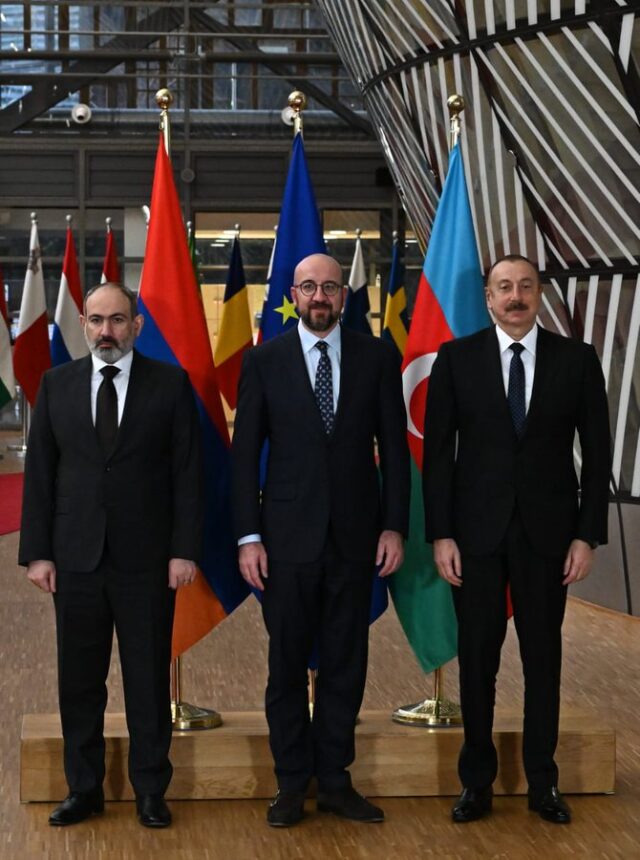Government heads of Armenia and Azerbaijan met in Brussels on 6 April and decided to work towards a peace arrangement. The talks were held under the European Union’s mediation. If the outcome of the talks is positive, the two countries are likely to see an end to their decades-long conflict.
Charles Michel, the European Council President who is mediating between the two parties said the leaders of the states during the meeting agreed to “move rapidly toward a peace agreement.”
The Armenian Prime Minister Nikol Pashinyan and Azerbaijan President Ilham Aliyev in the Brussels meeting also decided to set up a Joint Border Commission. The Commission will be mandated to delimit their mutual boundary line and “establish a stable security situation” around the border.
The latest decision is a significant move towards establishing peace. According to the mediator, the government heads “agreed to instruct Ministers of Foreign Affairs to work on the preparation of a future peace treaty, which would address all necessary issues.”
Any potential treaty should aim to resolve the conflict between Armenia and Azerbaijan. Since the later part of Soviet times, the dispute is over the territory of Nagorno-Karabakh. The two sides have fought two full-scale wars – one in the 1990s, when Armenia took control of Nagorno-Karabakh and the large area surrounding it, and again in 2020 when Azerbaijan gained control over the disputed region.
Prior to the 2020 war, peace talks were led by the Minsk Group of the Organization for Security and Cooperation in Europe. This body was led by representatives of the US, France, and Russia. Moscow took the lead to broker peace after the 2020 war. Russia also helped in reaching a ceasefire and has been making efforts to establish post-war diplomacy.
After the 2020 war, Azerbaijan has been pushing for a peace agreement, which will end the conflict. Armenians have remained reluctant to commit to a solution as their position is relatively weak.
There have been protests in Armenia during the latest summit, as the citizens fear concessions.
Both Russia and Turkey, which have been involved in brokering peace between the neighbours, have welcomed the latest decision.









